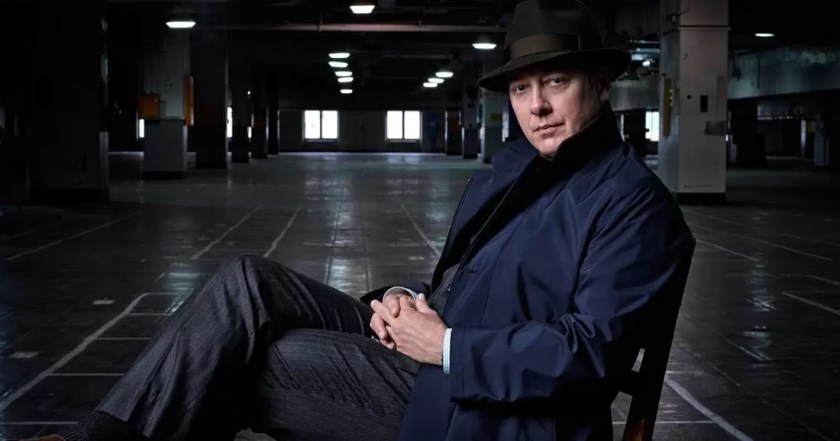Kurt Perez Blacklist
The Kurt Perez blacklist is an infamous list of Hollywood figures who have been deemed “difficult” or “toxic” to work with by producer Kurt Perez. Since surfacing in 2021, the blacklist has sparked intense controversy in the entertainment industry. In this in-depth exploration, we will seek to understand how the list came to be, the impact it has had on those named, and the legal issues it continues to raise.
Who is Kurt Perez and how did the blacklist come to be?
Kurt Perez is a veteran Hollywood producer known for his work on shows like Law & Order and CSI. According to Perez, the blacklist originated from notes he had been keeping for years on colleagues and contractors that were problematic on sets. In 2021, he compiled these notes into a shared Microsoft Excel sheet and circulated it among industry executives and casting directors.
Read this blog : Is Jenna Ortega Gay?
The initial list contained over 200 names and called out individuals for issues like lateness, diva-like behavior, verbal abuse of staff, and unprofessional conduct. Perez claimed his goal was to “clean up” Hollywood by weeding out troublesome figures. However, critics argue the list unfairly damages careers without due process. It also lacked context and only represented one side of often two-sided disputes.
The Controversy Surrounding the Blacklist
When news of the blacklist surfaced, it immediately sparked controversy in Hollywood. Those named felt it was defamatory and could ruin careers and job prospects on hearsay alone. There were also no clear standards for inclusion on the list—one could reportedly get on simply by being difficult during a single job.
Critics argued it reflected a toxic “call-out” culture where private disputes were made public without consent. Some saw it as an attempt to police artistic expression and difficult personalities. There were also claims the list played into ageism in Hollywood by targeting veterans. Unions condemned it as well, seeing it as undermining worker protections.
However, Perez’s supporters saw it as addressing rampant unprofessionalism in the industry by “naming and shaming” those who mistreated coworkers. They argued studios had looked the other way for too long and people had a right to information on working with difficult talents. The debate highlighted clashing views around due process, accountability, and workplace culture in Hollywood.
A Closer Look at Some of the Names on the List
While the full list was never publicly released, several names that were included provided insight into the types of talents targeted:
Shia LaBeouf: Known for troubled behavior on sets like the 2014 film Fury that reportedly included verbal abuse of staff.
Katherine Heigl: Gained a reputation in the late 2000s for rude behavior and pulling out of projects. Some felt she was blackballed as a result.
Charlie Sheen: Had multiple substance abuse-related meltdowns during his time on Two and a Half Men before being fired.
Katherine Waterston: Included for reportedly having a “bad attitude,” though she denied any issues in her response.
Kevin Spacey: Faced multiple allegations of sexual harassment and assault in recent years.
The names highlighted in the list had a mixture of figures with well-documented problematic behavior alongside those with less clear transgressions or just difficult personalities. This polarized opinions further on its fairness and targeting.
Impact of Being on the Blacklist

For those named, the impact was reportedly immense. Several talents claimed they suddenly experienced dwindling job offers, studios avoiding their projects, and general difficulty securing new work. Even respectfully confronting Perez provided no recourse for removal from the list.
Beyond damages to reputation and career prospects, the blacklist also took a mental and emotional toll. Many spoke of suffering from anxiety, depression, and post-traumatic stress as a result. Some industry professionals also reported feeling afraid to discipline problematic workers for fear of retaliation via blacklisting. This created an atmosphere of self-censorship and unfairly damaged careers.
With no clear appeals process or oversight of the list, it demonstrated the power of informal blacklisting and how damaging private notes and comments could be when circulated among executives with casting influence. However, the industry is complex and other factors like an individual’s behavior likely also impacted work opportunities.
Legal Actions Taken Against Kurt Perez and the Blacklist
Naturally, many of those named responded forcefully to their inclusion on the Perez blacklist. Some figures like actress Katherine Waterston hired lawyers to send cease-and-desist letters demanding removal from the list. However, Perez maintained that it was protected as a private document shared among colleagues.
In September 2021, directors Phil Lord and Chris Miller (The Lego Movie, Spider-Man: Into the Spider-Verse) filed a $25 million defamation lawsuit against Perez. They argued inclusion on the list based on “idle gossip and baseless speculation” had damaged their careers and reputations. Discovery attempts in the case have since aimed to expose the provenance and standards used for the blacklist.
The suit underscores how far some were willing to go to challenge what they saw as an unfair infringement on their reputations and livelihoods without evidence or due process. It has drawn further scrutiny toward tactics of informal blacklisting in Hollywood that can circumvent legal safeguards for workers. The outcome could shape how such efforts are handled going forward.
Interviews with Individuals on the List and Their Experience
Several of those named have since spoken out publicly about the blacklist and its impact:
Actress Katherine Waterston reflected that even undeserved inclusion caused “an immense amount of suffering and real difficulty in getting work.” She felt it preyed on “trial by media” instincts in a ruthless industry.
Producer Phil Lord described constant anxiety when the blacklist emerged, “feeling like you’re going to jump out of your skin.” He saw it as a bullying tactic disguised as a Housekeeping effort.
Writer D.V. DeVincentis compared being added arbitrarily with no notice as feeling “like you’ve been hit by a truck.” It highlighted the fragility of careers built on trust within Hollywood circles.
Their testimonials provided human perspectives on how potentially baseless accusations spread covertly in their profession can undermine livelihoods and mental wellbeing. It will take time to repair damaged reputations, even if legal action is successful.
The Blacklist Season 9 Finale
In a bizarre coincidence, the same month the Perez blacklist emerged, the popular NBC crime drama The Blacklist aired the Season 9 finale episode titled “The Blacklist Exposed.”
In the episode, a mysterious figure uploads a “blacklist” to the dark web naming undercover operatives throughout the intelligence community. This compromises their safety and jeopardizes national security efforts.
Some viewers argued the timely plotline seemed to comment on real world blacklisting and how convert dossiers can wield unchecked power over individuals while circumventing standards of due process. It highlighted the grave harms such tactics can enable when used without oversight or consent.
Honoring Departed Cast and Crew
As the controversy continues, it serves as a reminder of broader workplace issues in Hollywood still in need of reform. The blacklist also prompted callbacks to industry figures lost over the years in large part due to psychological pressures in their profession.
In 2022, efforts grew to honor actresses like Brittany Murphy and Sasha Jenson whose careers were cut short. Evidence suggests the toxic culture they navigated likely contributed to their untimely deaths. While reforms have occurred, many argue a need remains for more compassion and stronger protections for all entertainment industry workers.
The Perez blacklist underscores how informal blacklisting not only damages reputations and careers but also takes an immense psychological toll. As the legal case proceeds and debates continue, outcomes will hopefully shore up guarantees for due process while also promoting transparency and accountability in Hollywood at large.
Final Words
The issue of the Kurt Perez blacklist highlighted how informal blacklisting tactics can wield influence in damaging ways when circulated covertly among powerful industry figures. While addressing unprofessionalism is worthwhile, due process should be a priority to avoid baseless reputational harm.
As the legal case moves forward and debate continues, answers are still emerging around how to balance worker protections, transparency, and accountability in Hollywood’s complex social hierarchies. However, one thing is clear – the wellbeing of all professionals in the entertainment industry demands safeguards against unfair targeting that can undermine livelihoods and mental health without recourse. Overall reforms are still needed to build a culture where artistic expression and discipline can coexist without undue harm.








